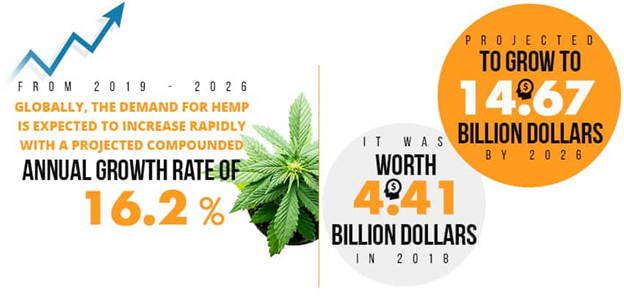The future for CBD products is bright and brimming with potential. But the regulations are still clouded in confusion. Understanding the legal obligations and staying abreast with the changes is crucial.
The CBD industry is exploding with infinite opportunities for new businesses. An appropriate hemp CBD business plan can help entrepreneurs to cut to the chase by charting a path to success and growth.
However, they have to keep in mind that the regulatory landscape for CBD is not clearly defined as yet. There are constant shifts in the regulations which loom like a darkening cloud of uncertainty over the CBD sector. Moreover, hardly any industry is as highly scrutinized as this one.
It should be noted that while the Farm Bill of 2018 legalized hemp-derived CBD at the federal level, this has served to merely free the cannabidiol from the Controlled Substances Act and the oversight of the Drug Enforcement Agency. Now the FDA is governing the hemp industry instead. It has disallowed the marketing of CBD as having health benefits. There have been crackdowns against CBD-infused foods and beverages in some instances too.
 In contrast, the states are choosing to legalize marijuana over hemp, leading to confusion over the status of CBD in the country. Clearer guidance is required for CBD businesses to operate in compliance with the changing regulations.
In contrast, the states are choosing to legalize marijuana over hemp, leading to confusion over the status of CBD in the country. Clearer guidance is required for CBD businesses to operate in compliance with the changing regulations.
A point in favor is that cannabidiol is not listed under any of the schedules of the 1961, 1971 or 1988 United Nations International Drug Control Conventions. A 2017 World Health Organization report declared that naturally occurring CBD is safe and well-tolerated in humans (in relevant doses as per age/weight/sex) while not being associated with any public health effects. WHO had earlier stated that CBD does not have ‘psychoactive properties and has no potential for abuse and no potential to produce dependence’. In fact, CBD is no longer a controlled drug in New Zealand, it is considered a prescription medicine provided the product contains no more than 2% THC of total CBD!
However, the International Classification of Diseases and the Diagnostic and Statistical Manual of Mental Disorders designate cannabis as an addictive substance, with recognised dependence disorders. To add to this, the stigma over anything to do with cannabis still lingers in the minds of many.
A pragmatic approach
Entrepreneurs stepping into the CBD space will do better to stay cognizant of the regulatory changes and incorporate appropriate compliance in their operations. They also have to be on their guard as the legalities can be both challenging and confusing.
Furthermore, they need to arm themselves with a clear and comprehensive business plan which covers all avenues of the business while anticipating potential changes that may arise in the future. It is proper planning and coordination that will ensure success in this complex business arena.
When it comes to getting the right, say hemp cultivation business plan, a professional resource of expert business plan consultants – like The Plan Writers (www.planwriters.com) - is essential.